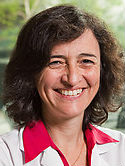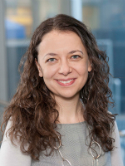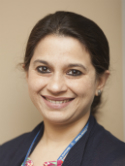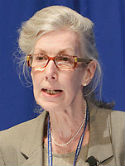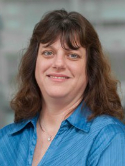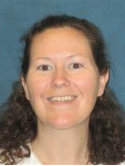Geriatric Oncology Cognition and Communication (Geri-Onc CC): An interactive training for healthcare professionals Journal Article
| Authors: | Parker, P. A.; Alici, Y.; Nelson, C.; Banerjee, S. C.; Coyle, N.; Roth, A. J.; Manna, R.; Alexander, K.; Gonzalez, J.; Ewert, R.; Schofield, E.; Li, Y.; Korc-Grodzicki, B. |
| Article Title: | Geriatric Oncology Cognition and Communication (Geri-Onc CC): An interactive training for healthcare professionals |
| Abstract: | Introduction: The number of older adults with cancer continues to increase. Many national and international organizations have called for the development of training opportunities for healthcare professionals (HCPs) to meet the unique needs of older adults with cancer and their families. Materials and Methods: We developed and implemented the Geriatric Oncology Cognition and Communication (Geri-Onc CC) training program for HCPs of all disciplines. This program included a two-day, intensive didactic and experiential training followed by six bi-monthly booster videoconference calls. We describe the format and content of this training, the preliminary results of program evaluation, as well as changes in knowledge, self-efficacy, and attitudes toward older adults pre- to post-training. Results: We describe data from the first six cohorts of HCPs who attended the training (n = 113). Participants rated the training highly favorably and reported that it met their training goals Mean = 4.8 (1–5 Scale). They also demonstrated a significant increase in their knowledge about geriatric oncology [(Pre-Mean = 6.2, standard deviation [SD] = 1.7; Post-Mean 6.8, SD = 1.6), p = 0.03] and self-efficacy in their ability to utilize the knowledge and skills they learned in the course [(Pre-Mean = 3.3, SD = 0.7; Post-Mean 4.5, SD = 0.4), p < 0.001]. There were no significant changes in attitudes toward older adults (p > 0.05), which were already very positive before the training. Discussion: There is a strong need for training in geriatric oncology. We have demonstrated that implementing this training was feasible, highly regarded, and positively impacted knowledge and self-efficacy regarding utilization of the knowledge and skills learned in the training. © 2023 |
| Keywords: | adult; controlled study; aged; neoplasm; neoplasms; cohort analysis; oncology; feasibility study; medical education; program evaluation; data analysis; communication; cognition; health care personnel; self concept; interpersonal communication; health care delivery; health personnel; health personnel attitude; skill; delivery of health care; geriatrics; knowledge; geriatric oncology; older adults; cancer; humans; human; male; female; article; videoconferencing |
| Journal Title: | Journal of Geriatric Oncology |
| Volume: | 14 |
| Issue: | 3 |
| ISSN: | 1879-4068 |
| Publisher: | Elsevier Inc. |
| Date Published: | 2023-04-01 |
| Start Page: | 101484 |
| Language: | English |
| DOI: | 10.1016/j.jgo.2023.101484 |
| PUBMED: | 36989939 |
| PROVIDER: | scopus |
| PMCID: | PMC10106423 |
| DOI/URL: | |
| Notes: | The MSK Cancer Center Support Grant (P30 CA008748) is acknowledged in the PubMed record and PDF. Corresponding author is MSK author Patricia A. Parker -- Source: Scopus |
Altmetric
Citation Impact
BMJ Impact Analytics
MSK Authors
Related MSK Work





